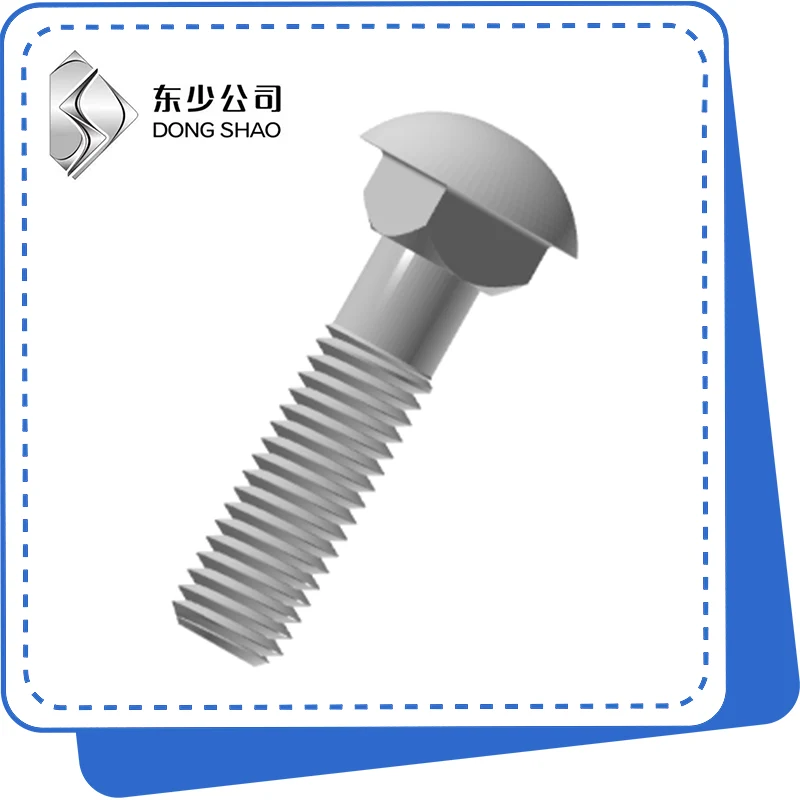The Essential Guide to Bolts: The Backbone of Modern Construction and Engineering
2024-12-20
Bolts are everywhere, from towering skyscrapers to the smallest pieces of machinery. As one of the most commonly used fasteners, bolts play a crucial role in securing structures and components across various industries.
What is a Bolt?
A bolt is a mechanical fastener with a threaded shaft, typically used in conjunction with a nut to secure two or more parts together. Bolts are designed to be strong, reliable, and reusable, making them an indispensable tool in construction, manufacturing, and beyond.

Types of Bolts
Bolts come in a wide range of designs, each suited for specific applications:
1. Hex Bolts
- Features: A hexagonal head and fully or partially threaded shaft.
- Uses: Common in construction, automotive, and heavy machinery.
2. Carriage Bolts
- Features: A round head and a square neck to prevent rotation.
- Uses: Ideal for wood-to-wood or wood-to-metal connections.
3. Anchor Bolts
- Features: Designed to secure structures to concrete or masonry.
- Uses: Frequently used in building foundations.
4. Eye Bolts
- Features: A looped head for attaching cables or ropes.
- Uses: Used in lifting, rigging, and marine applications.
5. U-Bolts
- Features: A U-shaped design with threaded ends.
- Uses: Secures pipes, tubes, or cylindrical objects.
Key Materials for Bolts
- Carbon Steel:
Most common and cost-effective, suitable for general applications.
- Stainless Steel:
Offers corrosion resistance, ideal for outdoor and marine environments.
- Alloy Steel:
High strength, used in heavy-duty and high-stress applications.
- Titanium:
Lightweight and strong, often used in aerospace and specialized industries.
Choosing the Right Bolt
Selecting the correct bolt involves considering several factors:
- Load Requirements: Determine the amount of weight or stress the bolt must withstand.
- Environment: Choose corrosion-resistant materials for outdoor or harsh conditions.
- Thread Type: Match the thread pitch and size to the nut and material being fastened.
- Head Design: Consider ease of installation and access to the bolt head.
Applications of Bolts
1. Construction:
Bolts are essential in structural steelwork, bridges, and high-rise buildings.
2. Automotive:
Used in assembling engines, frames, and other vehicle components.
3. Machinery:
Secure parts in industrial equipment and precision tools.
4. DIY Projects:
From furniture assembly to home repairs, bolts are indispensable in everyday use.
Tips for Proper Bolt Installation
- Tighten Correctly: Over-tightening can damage the bolt, while under-tightening can lead to failure.
- Use Washers: Distribute the load evenly and prevent damage to surfaces.
- Lubrication: Apply anti-seize compounds to prevent corrosion and ensure easy removal.
- Inspection: Regularly check bolts for wear, corrosion, or loosening.
Innovations in Bolts
Modern bolts are evolving to meet the demands of advanced industries. High-strength bolts, self-locking mechanisms, and smart bolts equipped with sensors are examples of how technology is enhancing bolt design and functionality.
Conclusion
Bolts may seem like simple tools, but their role in modern engineering and construction is unparalleled. By understanding their types, materials, and applications, you can choose the right bolt for any project and ensure safety, durability, and performance.


